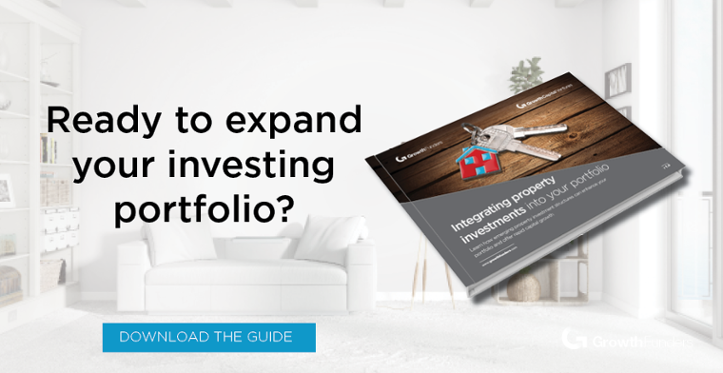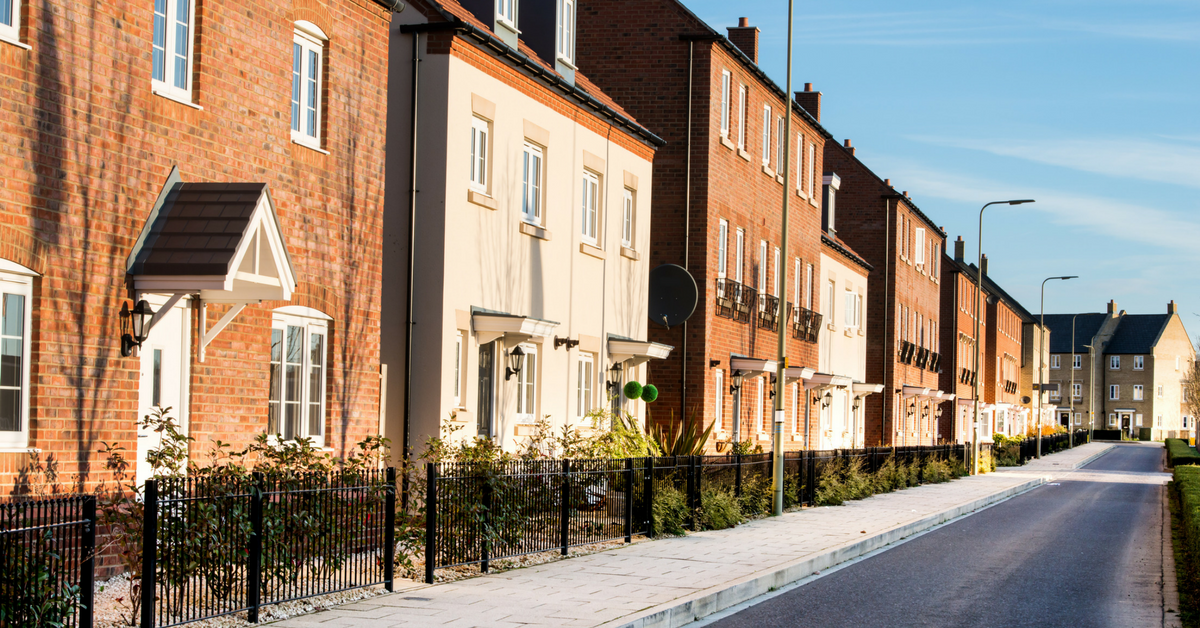Investing in UK housebuilding: is now the time to become a property investor?
Last year in the government's Housing White Paper, they described the housing market as “broken”.
However, the 2017 Autumn Budget in November announced plans set to tackle this housing crisis through a series of measures designed to stimulate the market. Outlining plans to increase the housebuilding target to 300,000 homes a year by the mid-2020s, the Chancelleor explained how this would represent a 77.9% increase on the 2015/16 level of building.
As we've talked about previously, it's up for discsussion whether these targets will be met. However, what has to be a given is that there should undoubtedly be a greater UK housebuilding activity – both market requirements and political pressure demand it.
The announcements are only the latest in a series of changes designed to reform the housing market by making buy-to-let less attractive to new investors and we are now starting to see the impact of this with new buy to let mortgages 47% lower in the year to August 2017 than March 2016.
With this in mind the Chancellor also confirmed a total of £15.3 billion of new support, including £1.5 billion of additional funding for the Home Building Fund, all designed to support SME builders achieve this target. This is a significant step taken by the government to focus on small and medium housebuilders, recognising their importance in providing the much needed additional supply of residential development not currently being brought to market by the large developers.
So how does this affect anyone interested in becoming a property investor?
Traditionally the smaller investors' favourite way to invest in the residential property market – away from their own homes – has been by buying property to rent to tenants.
This really took off in the 1990s with a greater spread of disposable wealth and rising property values, at which time the practice acquired the label `buy-to-let’. It seemed like a one way bet, with rising house prices giving healthy capital gains, at the same time as maintaining buoyant demand for rented accommodation from those who couldn’t afford to buy.
All good things must come to an end, however, and it looks like the golden age of buy-to-let might be over. Its popularity was felt to be distorting the housing market, making it even harder for first time buyers to enter and, over recent years, the government has moved to make it less attractive.
It has, therefore, hit buy-to-let investors with a triple whammy of a stamp duty hike, restricted tax relief on interest payments, and tighter regulation on mortgages.
What are the alternatives to buy to let?
Investors who have previously made regular investments into buy-to-let properties, or aspiring property investors looking to make their first investment, could easily find buy-to-let less compelling than in the past.
With demand for UK housebuilding increasing, and a governmental focus on this need, indirect property investment through an SPV allows investors to own equity in a specific development and realise their return as capital growth rather than income.
Making equity investments in property through SPVs offers a range of investor groups the opportunity to invest alongside one another and take on the role of property developers. As equity investments, the return on investment would come in the form of capital growth, an outcome that is traditionally considered a long-term objective. Equity investments in property offer the potential for elusive, rapid capital growth.
Other structures, such as a property bonds or funds can be included through a private pension scheme, either as a SIPP or SSAS to generate a return for your retirement free of tax.
Finally, recognising the advances in peer-to-peer lending platforms, investment through these alternative finance structures can be included in your Innovative Finance ISA (IFISA) to generate an income tax free.
What does investing in residential development projects involve?
One of the many investment alternatives, investing into residential development projects can be straightforward for anyone who is interested in becoming an property investor. In simple terms an investor can pledge their capital in exchange for shares in the project. Typically, this investment is made against a target development schedule detailing the time and target money multiple. Sometimes, a property project may pay dividends during the project in addition to the end returns, but in general it’s a target return at the end of the development schedule.
Each project has a slightly different development plan and strategy depending on the structure of the deal in terms of contractors, management and land ownership. It can also differ depending on the intention for the properties at the end of the project whether they are to be sold privately, rented or sold to a housing association for example.
Why invest in residential development projects?
There's an extensive list of reasons why investing in residential development projects is beneficial to the investor:
- Meeting the needs of the economy: the UK Government has detailed that there is a great need for residential homes. In addition to this, they pledged their support towards smaller home builders with the aim of providing 1 million more homes by 2020.
- Short development times and therefore return times: the returns on property developments are typically a lot sooner than investing in an early stage business. Property developments have a target return date which is the development and sales period.
- Asset backed investments: property investing is asset backed meaning your investment is secured against land and latterly property. There’s always value in the land and the assets on it with the variables being the selling price and building costs. However, these can usually be predicted for majority of the development timescale, especially with shorter development cycles as short as 18-22 months.
- Making a difference: property investing isn’t just investing for monetary returns and growth, it’s also a way of investing for impact. The end result is homes for people to rent or buy, assisting in tackling the housing crisis, but along the way there is also job creation, improved infrastructure and stimulation of the local economy and community.
- Easily accessible: the growth of fintech has led alternative investment platforms which embrace property investments. Innovative technology based solutions have come forward for property investors. With the advent of alternative finance platforms investors are able to provide finance for peer-to-peer loans and development finance alongside investment into SMEs, providing a diverse portfolio as well as the benefits of asset backed investment.
So the question - is now the right time to become a property investor?
Simply - yes. If anything it’s better than ever. With housing demand and increased governmental support for UK housebuilders, investing in property, particularly residential development projects, could not be simpler. The risks differ from project to project, however, this is an asset backed form of investing.
Essentially, you’re investing into a project made up of three elements: land cost, build cost and profit. The price of the land and the profit on the project would have to drop significantly to mean an investor ‘loses’ money. Such a project should, in theory, return at least the capital invested (but as always with investments and the associated risk, this cannot be guaranteed).
Residential property is an established asset class favoured by UK investors because it has historically provided strong returns through investments that are easy to understand. The reasons that property has been popular over the long-term – strong and sustained demand – will endure. The models through which investment most appeal to investors are changing; our ‘integrating property investments into your investment portfolio’ guide leads you through these in more detail, including numerous worked examples.

Furthermore, we’ve currently got a residential property investment opportunity online targeting a 1.5x return within an 18-22 month development period.
Carlton SPV 1 Chilton Limited (“SPV1”), a special purpose vehicle, will be set up to develop the 14 luxury family homes. GCV is seeking to raise £0.4 million of investment alongside the senior debt to finance the project.
This development investment opportunity will allow each investor to co-invest in this residential development scheme and share in the development profit - and to view the online campaign for more information or to pledge your investment, to view the online campaign for more information or to pledge your investment click here.
%20(3)%20(2).jpg)








